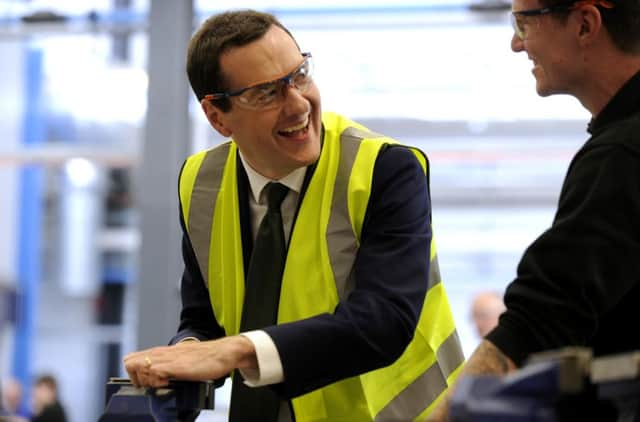Greg Wright: The region can't afford to be left waiting at the platform


You’re not alone. Jonathan Oxley, the regional chairman of the Institute of Directors, was speaking for many when he voiced concerns about the lack of progress on devolution settlements that could put real power into the hands of Yorkshire’s towns and cities.
According to Mr Oxley, we’ve got to bite the bullet and devise plans for say, four or five devolved regions in Yorkshire, and blow the cobwebs off plans to install elected mayors.
Advertisement
Hide AdAdvertisement
Hide AdElected mayors are seen as part of the price for having a devolution deal. We can kiss goodbye to any meaningful form of devolution if we decide that elected mayors are not for us.
So hard decisions must be made – immediately.
But what sort of devolved powers do we actually need? Whenever I talk to business leaders, I hear repeated complaints about two things –the shortage of staff with the right skills and the terrible transport system. It’s a double blow that is leaving too many firms with their chins on the floor.
After hunting high and low to find the dream employee, the typical boss is driven to despair by the creaking road and rail network which stops them from getting to work on time.
So what are the big issues that any devolved authority must address? It’s blindingly obvious. They must sort out the public transport system and ensure the education and training system delivers the staff our companies need.
Advertisement
Hide AdAdvertisement
Hide AdTo be fair, an organisation called Transport for The North (TFN) already exists and is working to improve capacity on our road and rail networks, and reduce journey times.
Last week, I met John Cridland, the new chairman of TFN, at the Yorkshire Fastest 50 awards.
He spoke about his determination to ensure that job hunters aren’t let down by the transport system.
Too many people can’t accept jobs that match their aspirations, because they can’t commute to them.
Advertisement
Hide AdAdvertisement
Hide AdSchemes in Mr Cridland’s in-tray include a proposal for a Trans-Pennine road tunnel, and George Osborne has also pledged £300m to create a fund that could support new road and rail schemes.
This is all encouraging. However, there’s no escaping the fact that the daily commute is a nightmare for many people. If you’re not crammed inside a train which never seems to have quite enough carriages, you’re stuck in gridlock as your life ticks by.
For many, the daily grind is dominated by delays and frustrations that should have been eliminated decades ago.
If you compare Leeds, for example, with a German city of a comparable size, the difference is horribly clear.
Advertisement
Hide AdAdvertisement
Hide AdIn terms of transport policy, we have fallen hopelessly behind our economic rivals. This failing is part of a long-term pattern.
When I was a student, my dissertation analysed the great railway mania of the mid-19th century. No, please don’t fall asleep, my argument is worth hearing.
My study found that weak governance led to a chaotic railway development system in Britain in the 1840s which didn’t serve the best interests of business or the public.
However, in other countries, such as France, strong regional and national decision makers intervened to devise a structure and fares system that aimed to make it harder to take the public for a ride.
Advertisement
Hide AdAdvertisement
Hide AdSo the lesson from history is clear – the region’s business community needs elected mayors with special powers to reform transport, education and training policies. But if we don’t act now we will really miss the bus.
Today, we’re proud to launch The Yorkshire Post Excellence in Business Awards 2016, the most prestigious business awards programme in the UK regional press. So what are you waiting for? Enter today by visiting bit.do/yorkshirepost